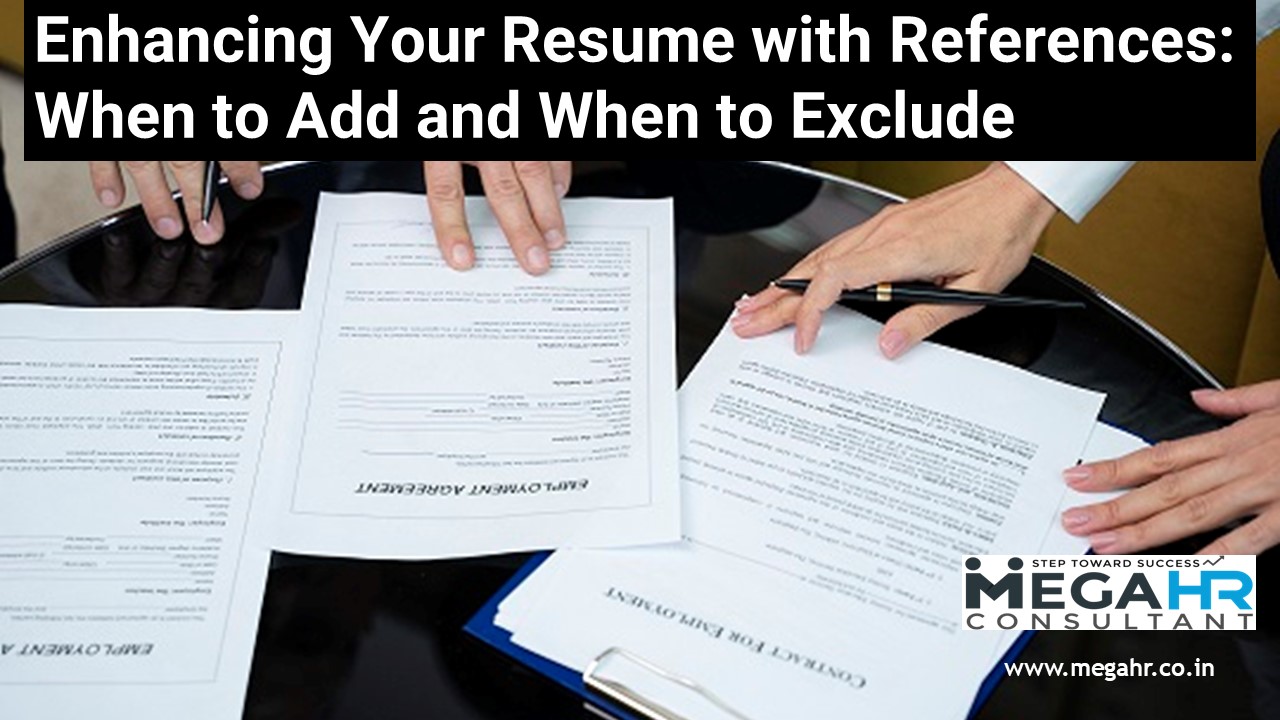The Role of References on Your Resume: When to Include and When to Skip
You want to present your experiences and qualifications in the best possible light, therefore looking for a job can be really exciting, but it can also be pretty scary because you want to show yourself in the best way possible. There are many different aspects to consider while putting together a resume and application for a job. One of these aspects is the question of whether or not to include references on your curriculum vitae (CV).
This blog was created with the intention of shedding light on the mystery that surrounds references, including their worth, the impact they have on your CV, and the scenarios in which they may play a crucial function. After you’ve completed reading this, you’ll have all of the knowledge you need to determine whether or not the application for the next job you apply for should include references.
Understanding the Purpose of References
Your references are like a backstage pass to your professional performance; they give potential employers a glance into your work ethic, skills, and character. References are like a backstage pass to your professional performance. They are evidence that you are qualified for the position that you are applying for and act as a testimonial to your suitability. On the other hand, the issue of whether or not to include references on your resume is not a black-and-white matter. Before we get into the “whens” and “whys,” let’s first take a deeper look at the purpose of references:
- Validation of Qualifications: References provide evidence that supports the statements you make about your qualifications in your resume. They offer concrete illustrations of the achievements and contributions you’ve made in the past.
- Assessment of Fit: An evaluation of the candidate’s compatibility with the organization’s culture and values Employers looks for qualified applicants, but they also want people who share the same beliefs as the organization. Your ability to work well with others and collaborate is illuminated by the references you provide.
- Addressing Concerns: If there are any potential red flags raised by your CV, references might provide perspective for the situation. They assist in bridging the gap between the experiences you’ve had in the past and the potential you have for the future.
When References Can Add Weight to Your Resume
- Highlighting Relevant Relationships: An endorsement from a reference who is exceptionally well-known in your sector or who has a significant relationship to the organization to which you are applying might carry a great amount of weight.
- Expertise in a Particular industry: In highly specialized professions, obtaining a reference who can attest for your talents and ability helps indicate both your credibility and your expertise in the industry.
- Credibility During Career Transitions: When you are switching careers or entering a new industry, having a list of references may be quite helpful in establishing your credibility. They provide you with a glimpse into your flexibility as well as your potential.
- Personal Testimony: If you’ve worked closely with a reference who can speak to your accomplishments and character, their endorsement can amplify your resume’s impact.
When You Might Choose to Skip References
- Space Restrictions: With the intention of being succinct, your resume should ideally fit inside one to two pages. This is the ideal. It’s possible that devoting room to references will hinder your capacity to display your experiences in an effective manner.
- Confidentiality and Discretion: If you are currently working and looking for new chances in a discrete manner, publishing references publicly could endanger the confidentially of your search for new opportunities.
- Application Instructions: If a job advertising specifies very clearly that “references available upon request,” then you should adhere to this advice and refrain from initially supplying references in your application.
- Generic References: References who are unable to supply specific information and can only provide general or unclear information may not add significant worth to your application.
Making an Informed Decision: Factors to Consider
- Industry Norms: Research what is considered standard practice in your sector and follow those guidelines. There are some industries that place a larger importance on citations, while there are others that could consider them optional.
- Application Instructions: Application requirements It is imperative that you follow the application requirements exactly as they are outlined in the job advertisement. If references are required, make sure to include them in your submission.
- Quality Over Quantity: Prioritize References Who Can Convincingly Speak to Your talents and Character Pick references who are able to convincingly speak to your talents and character. One great reference is worth more than a big list of poor ones when it comes to the weight of an argument.
- Job Requirements: If the job role specifies requests references who can attest to certain talents or experiences, you should assess whether or not your references correspond with these needs.
The references that you include on your resume are like a blade with two sides: they can either help or hurt your chances of getting the job. The decision on whether or not to add references need to be an intentional one, made after giving due thought to a variety of different aspects. Even though having references can unquestionably help your application, providing them is not a required part of the process.
Before choosing a choice, it is important to consider the circumstances, where you are in your career, and the standards of the industry. Your objective should be to submit a resume that is compelling, does an effective job of showcasing your qualifications, is aligned with the goals of the business, and gets you started in the right direction to achieve success in your job search journey.
Also, read our blog Resume Writing: 10 Steps to write an Effective Resume


